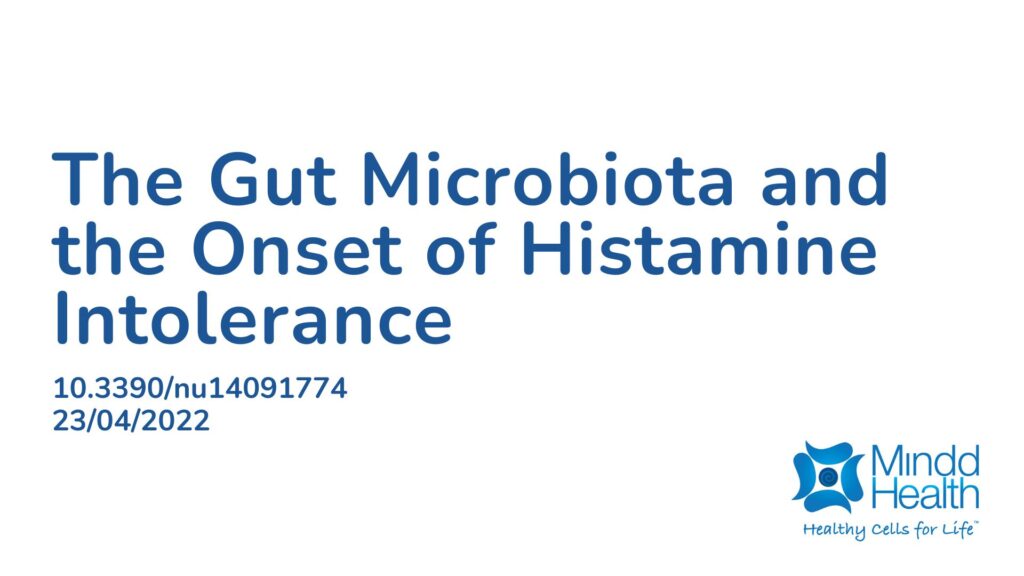Summary:
Research clearly documents the role that the gut microbiome plays in human health. It can be influenced by diet, lifestyle, stress and medications. The connection between the gut microbiota and conditions like obesity, diabetes, cancer, and neurological disorders has been widely studied, but its role in food intolerances, including histamine intolerance, is less understood. Histamine intolerance occurs when the body reacts adversely to dietary histamine. A key contributor is deficiency of diamine oxidase (DAO), the enzyme that breaks down histamine in the gut. DAO deficiency can be genetic, caused by certain medications, or arise from gastrointestinal disorders such as IBS. Reduced DAO activity leads to higher histamine absorption and can trigger a range of symptoms affecting the gut, skin, respiratory system, and nervous system. Gastrointestinal complaints, including bloating, fullness after meals, diarrhea, constipation, and abdominal pain, are most common. Research shows that certain gut bacteria can produce histamine, while others can degrade it. Alterations to bacterium, known as dysbiosis, could increase intestinal histamine levels and contribute to symptoms, even in people without DAO deficiency. This study compared the gut microbiota of individuals with histamine intolerance to healthy controls. Participants with histamine intolerance had lower levels of beneficial bacteria, including Prevotellaceae, Ruminococcus, Faecalibacterium, and Faecalibacterium prausnitzii, and higher levels of histamine-producing bacteria, including Staphylococcus, Proteus, Clostridium perfringens and Enterococcus faecalis. These findings suggest that histamine intolerance may begin in the gut, as an overabundance of histamine-producing bacteria can increase histamine levels and contribute to symptoms even when DAO activity is normal.
Abstract:
An underlying cause of histamine intolerance is diamine oxidase (DAO) deficiency, which leads to defective homeostasis and a higher systemic absorption of histamine. Impaired DAO activity may have a genetic, pharmacological or pathological origin. A recent proposal also suggests it can arise from an alteration in the gut microbiota, although only one study has explored this hypothesis to date. A greater abundance of histamine-secreting bacteria in the gut could lead to the development of histamine intolerance. Thus, the aim of this study was to characterize the composition of the intestinal microbiota of patients with histamine intolerance symptoms and compare it with that of healthy individuals. The study was performed by sequencing bacterial 16S rRNA genes (V3-V4 region) and analyzing the data using the EzBioCloud Database. Dysbiosis of the gut microbiota was observed in the histamine intolerance group who, in comparison with the healthy individuals, had a significantly lower proportion of Prevotellaceae, Ruminococcus, Faecalibacterium and Faecablibacterium prausnitzii, which are bacteria related to gut health. They also had a significantly higher abundance of histamine-secreting bacteria, including the genera Staphylococcus and Proteus, several unidentified genera belonging to the family Enterobacteriaceae and the species Clostridium perfringens and Enterococcus faecalis. A greater abundance of histaminogenic bacteria would favor the accumulation of high levels of histamine in the gut, its subsequent absorption in plasma and the appearance of adverse effects, even in individuals without DAO deficiency.
Article Publication Date: 23/04/2022
DOI: 10.3390/nu14091774



